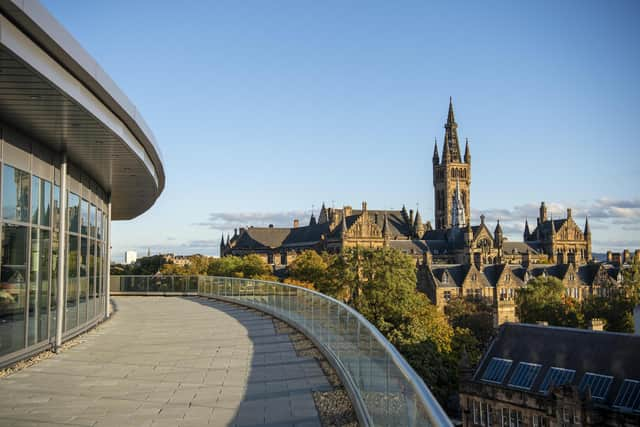New University of Glasgow centre will help tackle climate challenge and ‘support just transition’
The University of Glasgow is to aid the global drive to net zero after launching a research centre focused on supporting the transition to low-carbon energy systems.
The Glasgow Centre for Sustainable Energy, unveiled today, will bring together academics from across the institution to work on new ways of delivering the major reform of energy services and infrastructure required to reach net zero targets. It will work to find “equitable and affordable” ways to reliably meet the world’s energy needs without contributing further to climate change.
Advertisement
Hide AdAdvertisement
Hide AdStudies carried out at the new centre will build on the university’s decades of research on adaptive, accessible and resilient technologies for the supply, storage, distribution and efficient use of renewable energy. A key consideration for the facility’s work will be developing ideas and strategies to ensure that future energy systems and technology are “accessible to all, created in partnership with citizens, and fit to withstand the challenges of a rapidly-changing planet”, the university added. Professor Gioia Falcone of the university’s James Watt School of Engineering is the new centre’s director, while professor David Flynn is its associate director.


Falcone said: “The International Energy Agency recently concluded, in its updated net zero roadmap, that a pathway to limiting global warming to 1.5 degrees is very difficult - but remains open. The unique value offered by the new Glasgow Centre for Sustainable Energy is its sustainable systems thinking: we see energy as a service to human development, but we also firmly believe that the energy provision needs to be sustainable and accessible to all, avoiding unintended environmental and societal consequences.
“Researchers at the University of Glasgow have been working on new ways to address these challenges for many years now. We regularly partner with industry to take fundamental research to market and with governments to keep evidence at the heart of climate debates. The centre will bring all these activities under a single banner.”
The new centre will also forge partnerships with communities, governments and industry both in the UK and globally, and build on relationships already established with key decision makers including the United Nations, European Union and UK Research & Innovation.
Professor Chris Pearce, vice principal for research and knowledge exchange, said: “The centre will lead on the development of energy technologies that are truly embedded in sustainable whole-system pathways, and advance the University of Glasgow’s reputation as a leader in energy solutions. The centre is the latest development in our efforts to tackle the climate crisis and support a just transition. It also reflects the university’s broader commitment to finding solutions to some of society’s biggest challenges through our research, innovation, education and partnerships.”
Professor Muffy Calder, head of the college of science and engineering, added: “The University of Glasgow has a proud history of pioneering energy and physical sciences research thanks to the work of James Watt, Lord Kelvin, William Rankine and Joseph Black, among others. The Glasgow Centre for Sustainable Energy is well-placed to tackle the challenges of the future, drawing on the expertise of the university’s leading researchers of today to create the low-carbon world we need to meet our net-zero goals.”
Comments
Want to join the conversation? Please or to comment on this article.